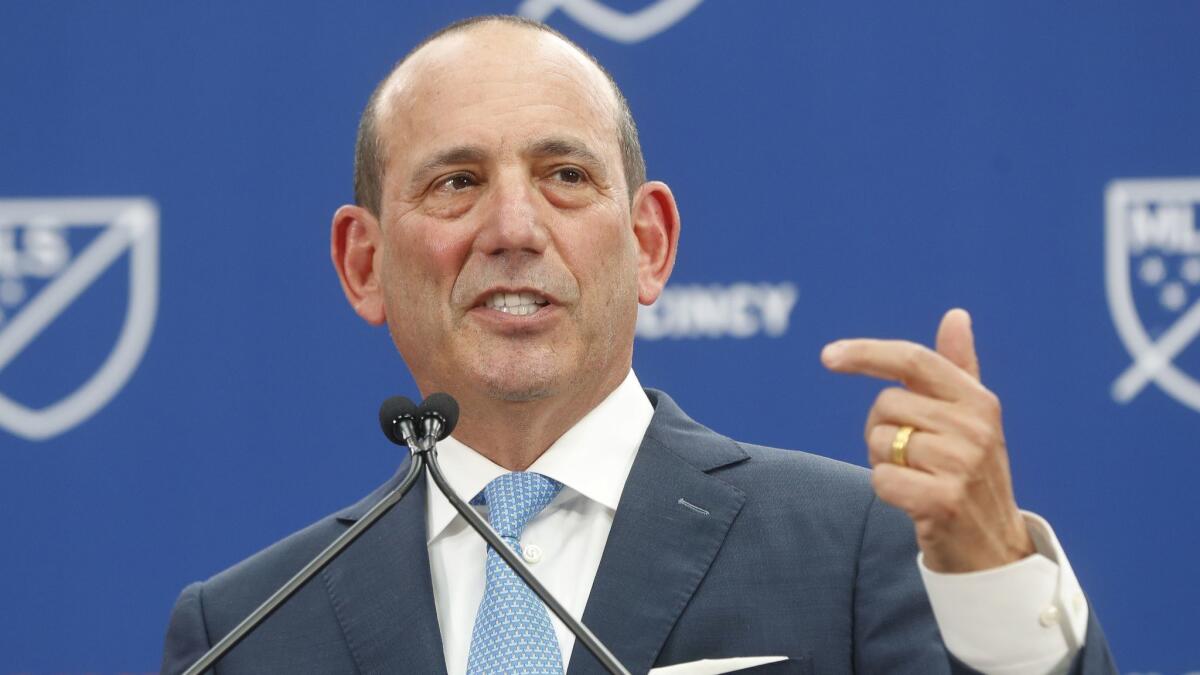MLS will seek compensation for affiliated academy players who sign outside the league

Major League Soccer announced Thursday that its clubs will now assert training compensation claims for any player developed in a league-affiliated academy who signs his first professional contract with a non-MLS team outside the U.S. and Canada.
MLS clubs will also seek FIFA-administered solidarity payments when players developed in MLS club academies are transferred for a fee between clubs that are members of different international federations.
Solidarity payments are a way in which FIFA attempts to compensate youth clubs for developing players. For example, when a player is transferred while under contract, a 5% fee is tacked on to the transfer and distributed to each club that developed the player, starting from their 12th birthday.
The two MLS moves Thursday could potentially bring millions of dollars into an academy system in which the league and its clubs have invested heavily.
FIFA’s 2018 guides to training compensation payments range between $2,000 and $100,000, depending on the federation and the quality of the club. Solidarity payments could run easily top half a million dollars, depending on the size of the transfer fee.
In his state of the league address in December, MLS commissioner Don Garber pushed strongly for the adoption of both solidarity and training compensation.
“It’s a big issue for our league,” he said. “I don’t know that it’s entirely about young players chasing their dreams as much as its international clubs chasing our young players. That’s something we’ve got to wrap our collective minds around and figure out how do we manage that in a way that justifies our owners investing this year north of $100 million outside of our first team rosters.”
Without compensation, Garber said: “I don’t know how we can justify making the kind of investments that we’ve been making.”
For much of the league’s existence, training compensation and solidarity payments weren’t issues because MLS sent so few academy-produced players overseas. But it’s become a more urgent topic recently, given the clubs’ stepped-up investment in the academy programs and the exodus of players such as Weston McKennie, Alphonso Davies, Giovanni Reyna and Galaxy academy players Uly Llanez and Alex Mendez to Europe.
An MLS spokesperson said teams will not be able to receive payments for players signed by overseas clubs retroactive to the league’s implementation of the new policies Thursday.
“Our view about this whole area is very different than it was two, three, four or five years ago,” Garber said in December. “The product that we’re developing have become some of the most important assets that we need to start figuring out ways that we’re either protecting, or we’re finding ways to get compensated for if we can’t protect them or can’t sign them.”
MLS will begin distributing notice of the new policy to every MLS academy player and his parents or guardians. The players and their parent/guardians will be required to sign a paper acknowledging that if they sign a contract to play professionally for a non-MLS club out the U.S. or Canada, the player’s club academy will have the right to claim training compensation from that team.
Sign up for our weekly soccer newsletter »
Twitter: @kbaxter11







